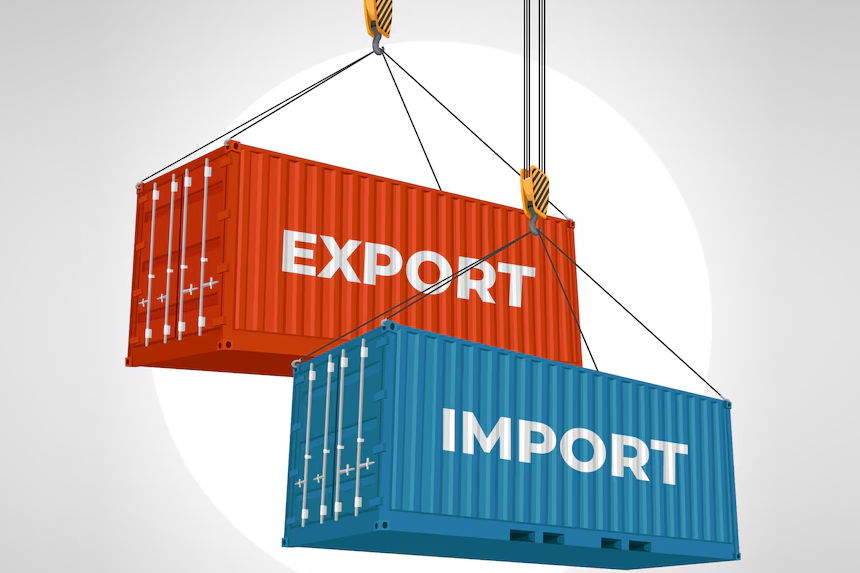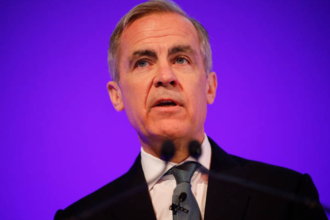Warning that such steps may have a disastrous economic impact on all four countries, officials from Canada, Mexico, and China have fiercely objected to U.S. President-elect Donald Trump’s proposals to impose broad tariffs on the three countries.
President Claudia Sheinbaum of Mexico said the tariffs were risky because reprisals would happen quickly. “One tariff will follow another in response, and so on, until we expose our common businesses to risk,” she said.
Why are Trump's tariff proposals centered on drugs and immigration?
In his most recent economic plan, Trump intended to impose 10% on Chinese imports and 25% taxes on items from Mexico and Canada. He asserted that the tariffs were a reaction to the continuous problems with narcotics and illegal immigration, which he had previously connected with these nations.
Trump reinforced his position on Monday night on Truth Social, his social media site, stating that these steps were required to safeguard American employment and security.
How is Canada handling Trump's suggested tariffs?
Reacting fast to Trump’s declaration, Prime Minister Justin Trudeau revealed that he had talked with the President-elect just after the tariffs were floated. Trudeau also mentioned intentions to talk more with provincial leaders to create a suitable reaction.
Trudeau underlined that Canada was prepared to interact constructively with the United States, saying, “This is a relationship that we know takes a certain amount of working on, and that’s what we’ll do,” trying to ease worries.
Trudeau also mentioned that, compared to the U.S.-Mexico border, the number of immigrants crossing the Canadian border was much fewer, even as they were talking about trade and border security. “Nobody wants to go to war with the United States,” Trudeau said to House of Commons members in Ottawa. He preached peace and cooperation, adding, “That is the work we will perform honestly, methodically, but without panicking.
How Does China View the Proposed Tariffs and the Trade War Risk?
China also denounced Trump’s tariff threats; an embassy official from China in Washington rejected the notion of a trade war. The spokesman said, “Nobody will win a trade or tariff war.”
Regarding China’s involvement in the illegal drug flow to the United States, particularly about fentanyl, the spokesman refuted Trump’s allegations. “China has reacted to U.S. requests for confirming evidence on specific incidents and acted. The spokesman continued, all of which show that the concept of China deliberately letting fentanyl precursors enter the United States runs utterly opposite truth and facts.
President Joe Biden keeps most of the tariffs Trump slapped on China, but the U.S.-China relationship remains tense. Tariffs to more than 60% of products exchanged between the two countries have already raised tensions.
What are the economic repercussions, and how is Mexico preparing for reprisal?
Mexican President Claudia Sheinbaum warned about possible repercussions should the U.S. continue with the tariffs. Sheinbaum said, stressing Mexico’s initiatives to address illegal migration and drug trafficking, “Neither threats nor tariffs will solve the migration phenomenon or drug consumption in the U.S.,”
Sheinbaum clarified further that Mexico would not hesitate to respond with her tariffs on American imports. She cautioned that these behaviors would jeopardize regular companies and sectors depending on international cooperation. “Who will it affect if tariffs rise? General Motors, she noted, pointing to the intertwined supply lines between Mexico and the United States.
Sheinbaum pointed out that “caravans of migrants no longer reach the border,” therefore stressing Mexico’s actions to reduce illegal immigration. She underlined once more that drug use in the United States was a public health concern rather than one resulting just from Mexico.
Should U.S. tariffs be imposed, what financial risks exist for Canada?
Canada has been a critical trade partner for the United States; any disturbance of this relationship might severely affect the economy. At about $437 billion worth of commodities, the United States was the biggest market for Canadian exports in 2022. Almost 75% of all exports from Canada go to the United States, so any tariff imposed would significantly affect this commerce.
Canadian officials have expressed worries about the effects on jobs and workers, particularly in the provinces. Further underlining that linking Canada to Mexico in the context of tariffs was “the most insulting thing I’ve ever heard,” Ontario Premier Doug Ford said the proposed taxes were “devastating to workers and jobs in Canada and the U.S.”
The prime ministers of Quebec, Saskatchewan, and British Columbia voiced strong resistance to Trump’s tariff proposals, reflecting Ford’s opinions. Alberta Premier Danielle Smith noted Trump’s worries about illegal activity at the shared border but underlined that Alberta’s economic ties to the United States were vital.
How do Trump's tariff proposals affect the Mexican and Canadian currencies?
The Canadian currency has dropped sharply since Trump’s statement, falling below 71 U.S. cents—the lowest level since May 2020, when Trump threatened comparable taxes on Canadian products. Additionally, the Mexican peso suffered, dropping to its lowest value of the year—about 4.8 cents.
As hostilities increase, a trade war looms large. Such a situation would have effects on both sides of the border, with many companies and employees at risk of suffering significant financial losses.
How likely are diplomatic responses to the tariff crisis as opposed to strategic ones?
Trade conflicts hardly help anyone, as officials around North America and China are preparing for a possible fallout from Trump’s tariff recommendations. Leaders, including Trudeau, Sheinbaum, and Chinese officials, have demanded diplomatic answers that address underlying problems such as drug use and immigration without endangering the stability of the world economy. The globe will closely observe as 2024 draws near to see whether the incoming U.S. government veers forward with its divisive trade policy or changes direction.








